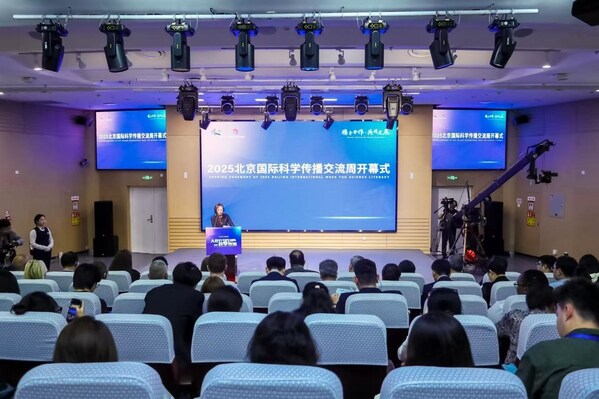Science
Beijing Science Literacy Week Highlights AI in Global Communication

The 2025 Beijing International Week for Science Literacy concluded on September 20, following a five-day program dedicated to exploring the role of artificial intelligence (AI) in science communication. The event, held at the Beijing Science Center from September 16 to 20, focused on how AI can enhance science outreach, promote global collaboration, and encourage public engagement with scientific issues.
Opening remarks were delivered by a range of senior officials and international science leaders, including Li Xin, Executive Vice President of the Beijing Association for Science and Technology (BAST), and Shahbaz Khan, Director of the UNESCO Regional Office for East Asia. Other notable speakers included Guo Zhe, Director of the China Science and Technology Museum, and Lazzat Kussainova, Chairperson and Chief Researcher of the Kazakhstan-based International Centre of Scientific Collaborations.
During the opening ceremony, Su Guomin, Vice President of BAST and Secretary-General of the Beijing Global Network of Science Festivals, presented certificates to new members of the network. This year’s event attracted nearly two dozen representatives from science festival committees and museums across 14 countries, including Thailand, South Africa, and Norway. Over 200 participants from various regions in China, including Beijing, Shanghai, and Anhui, attended the event. The diverse group included directors of science and technology museums, researchers, and faculty from universities and institutes.
The week featured a series of sessions where international experts shared innovative practices in immersive science education. A dedicated exhibition zone showcased interactive displays that highlighted new methods for public engagement in science. Additionally, youth-oriented workshops, organized in collaboration with global institutions, provided hands-on activities aimed at inspiring the next generation of innovators.
The emphasis on AI-driven communication resonated throughout the discussions, with participants examining how technology can bridge gaps in understanding and enhance the dissemination of scientific knowledge. As the event wrapped up, there was a shared sense of responsibility among attendees to address societal challenges through improved science communication strategies.
Overall, the Beijing International Week for Science Literacy served as a platform for fostering collaboration and innovation in the field of science communication, highlighting the potential of AI to transform how scientific information is shared and understood globally.
-

 Business5 months ago
Business5 months agoKenvue Dismisses CEO Thibaut Mongon as Strategic Review Advances
-

 Lifestyle4 months ago
Lifestyle4 months agoHumanism Camp Engages 250 Youths in Summer Fest 2025
-

 Sports4 months ago
Sports4 months agoDe Minaur Triumphs at Washington Open After Thrilling Comeback
-

 Sports5 months ago
Sports5 months agoTupou and Daugunu Join First Nations Squad for Lions Clash
-

 Top Stories5 months ago
Top Stories5 months agoColombian Senator Miguel Uribe Shows Signs of Recovery After Attack
-

 World5 months ago
World5 months agoASEAN Gears Up for Historic Joint Meeting of Foreign and Economic Ministers
-

 Health4 months ago
Health4 months agoNew Study Challenges Assumptions About Aging and Inflammation
-

 Business5 months ago
Business5 months agoOil Prices Surge Following New EU Sanctions on Russia
-

 Entertainment4 months ago
Entertainment4 months agoDetaşe-Sabah Violin Ensemble Captivates at Gabala Music Festival
-

 Entertainment4 months ago
Entertainment4 months agoBaku Metro Extends Hours for Justin Timberlake Concert
-

 Top Stories5 months ago
Top Stories5 months agoRethinking Singapore’s F&B Regulations Amid Business Closures
-

 Business5 months ago
Business5 months agoU.S. House Approves Stablecoin Bill, Sends to Trump for Signature









